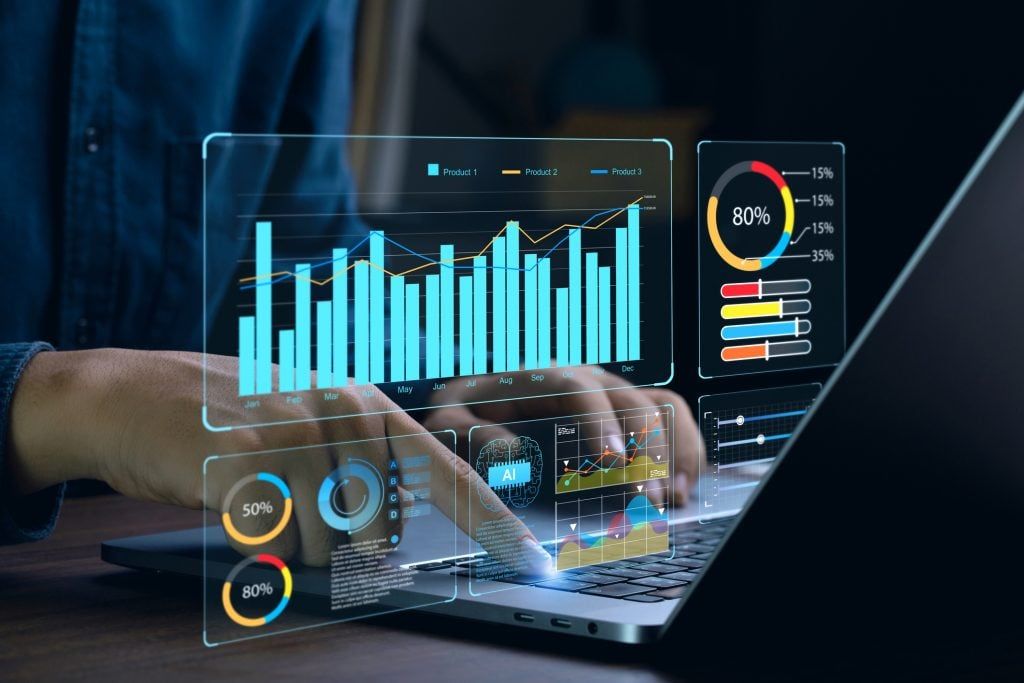Over the past decade, artificial intelligence has transformed from a futuristic concept into a dominant force shaping industries worldwide. In the U.S. stock markets, investors have increasingly recognized the vast potential of this technology, driving significant growth in companies developing AI-driven solutions. From cloud computing firms to robotics manufacturers.
This growing momentum is not only a response to technological breakthroughs but also to the tangible results already visible in different industries. Healthcare companies now use AI for diagnostics, and logistics firms rely on robotics for automation. Each of these applications adds credibility to artificial intelligence as a long-term investment theme that continues to reshape the dynamics of Wall Street portfolios.
Why robotics and AI attract institutional investors

Institutional investors have long been the backbone of market growth, and their shift toward artificial intelligence and robotics has become more pronounced in recent years. The reasons are clear: these technologies have the power to reduce operational costs, increase productivity, and generate innovative products that redefine market standards. Such benefits directly translate into stronger financial performance.
Moreover, the pandemic accelerated the adoption of robotics in manufacturing and logistics, proving their resilience in times of crisis. When labor shortages disrupted supply chains, companies that had already invested in robotics and artificial intelligence were better positioned to maintain operations. This real-world validation reinforced the belief that these sectors are not just passing trends but essential pillars of future economic development.
Key industries leading the charge in AI investments
The surge in artificial intelligence investments is fueled by industries that understand the urgency of integrating advanced technology into their core strategies. From healthcare and logistics to manufacturing and finance, companies are embedding AI to optimize processes and strengthen competitiveness. Among them, three stand out:
- Technology giants: Companies like Microsoft, Google, and Amazon have heavily invested in AI research, creating ecosystems that dominate cloud services and machine learning.
- Healthcare providers: Hospitals and biotech firms increasingly rely on AI to improve diagnostics, personalize treatments, and accelerate drug discovery.
- Manufacturing and logistics: Robotics has streamlined production lines, while AI optimizes inventory and transportation, ensuring higher efficiency and reduced costs.
These sectors illustrate the breadth of applications that artificial intelligence can cover. For investors, the diversity of industries adopting AI creates a balanced and promising opportunity, allowing for diversified exposure across different segments of the U.S. stock markets.
The role of ETFs and retail investors in AI growth
Beyond institutional investors, retail investors have also fueled the momentum of artificial intelligence in stock markets. Exchange-traded funds (ETFs) focused on AI and robotics have become popular vehicles, offering exposure to a basket of companies driving innovation. These funds simplify participation for individuals who want to benefit from the sector’s growth without selecting individual stocks.
The accessibility of ETFs has democratized investment in artificial intelligence, making it possible for smaller investors to align their portfolios with global technological trends. This dynamic further amplifies demand, creating a cycle of investment inflows that sustain the expansion of AI-related companies in the stock exchanges.
Long-term outlook for artificial intelligence and robotics investments
Looking ahead, the prospects for artificial intelligence and robotics remain exceptionally strong. As governments, corporations, and startups allocate more resources to research and development, the pace of innovation is expected to accelerate. Investors who recognize this trajectory are positioning themselves early to capture potential gains that will likely define the next decade of financial markets.
Still, caution remains important, as rapid growth often comes with volatility. However, the consistent demand for efficiency and innovation suggests that artificial intelligence will continue to serve as a cornerstone of modern economies. For both institutional and retail investors, AI and robotics represent not only a profitable opportunity but also a pathway to shaping the industries of tomorrow.



